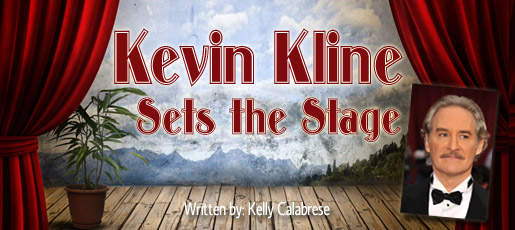In the current landscape of entertainment, comedy is experiencing a notable boom, driven by a surge in stand-up tours, streaming specials, and a cultural shift towards using humor to navigate and discuss contemporary issues. For actors looking to diversify their skills or reinvigorate their careers, delving into stand-up comedy might just be the rewarding challenge they need. Here’s why and how actors should consider this transition:
1. Expand Your Creative Horizons
Stand-up comedy offers a unique platform for self-expression and storytelling that differs from acting in scripted settings. It provides a direct line of communication with the audience, allowing for immediate feedback and a personal connection that can be immensely gratifying.
2. Develop and Showcase Versatility
Actors are storytellers at heart, and stand-up comedy is another form of storytelling that relies heavily on timing, tone, and delivery. These are skills that most actors already possess but can hone further in the raw, unfiltered arena of stand-up.
3. Increase Visibility and Expand Your Audience
With the rise of digital platforms and social media, content can go viral quickly, reaching a global audience overnight. For actors, creating engaging stand-up content can lead to increased visibility and open up new career opportunities, including tours, special appearances, and even roles in comedy films or series that might previously have been out of reach.
4. Engage with Contemporary Issues
Comedy often serves as a reflection of society, providing commentary on life’s absurdities and challenges. Actors who engage in stand-up comedy can address topical issues, showcase their intellectual and emotional depth, and connect with audiences on meaningful levels.
5. Build Resilience and Adaptability
The immediate feedback loop of stand-up comedy — where the audience’s reactions can be both exhilarating and brutal — is an excellent ground for building resilience and adaptability. These traits are invaluable in all areas of performance, making you a stronger, more responsive actor.
Several celebrity actors have successfully branched out into stand-up comedy, blending their acting skills with comedic storytelling on stage. Here are some notable examples:
- Robin Williams – Known for his improvisational skills and energetic comedy, Robin Williams started as a stand-up comedian before becoming one of the most beloved actors in Hollywood.
- Eddie Murphy – Murphy began his career in stand-up comedy and gained fame on “Saturday Night Live” before transitioning to a successful film career, while occasionally returning to his comedy roots.
- Jamie Foxx – Starting off as a stand-up comedian, Jamie Foxx made a smooth transition into acting, and has since won numerous awards for his roles in film and television.
- Jim Carrey – Carrey’s career began with stand-up comedy, showcasing his dynamic energy and physical comedy, which later became the foundation of his acting career.
- Adam Sandler – Initially a stand-up comedian, Sandler became a popular SNL cast member and transitioned into a successful film career, often incorporating humor from his stand-up days.
- Steve Martin – Known for his stand-up comedy in the 1970s, Steve Martin’s wry humor and unique style helped him transition into a successful career in film and writing.
- Chris Rock – Starting his career as a stand-up comedian, Chris Rock became a prominent comedic actor and filmmaker, known for his insightful and often provocative humor.
- Ray Romano – Best known for his role in “Everybody Loves Raymond,” Romano began his career in stand-up comedy, which laid the groundwork for his television success.
- Seth Rogen – Though primarily known as an actor and filmmaker, Seth Rogen started performing stand-up comedy as a teenager before transitioning into acting.
- Whoopi Goldberg – A pioneer in blending comedy with social commentary, Goldberg’s early career in stand-up comedy set the stage for her success in film and television.
- Kristen Wiig – Before her success on “Saturday Night Live” and in film, Kristen Wiig performed with the improv comedy troupe The Groundlings, which included stand-up elements.
- Tiffany Haddish – She gained prominence through her stand-up routines and breakthrough film roles, leveraging her vibrant personality and comedic timing from the stand-up stage.
- Sarah Silverman – Known for her satirical comedy, Silverman started as a stand-up comedian and successfully transitioned into film and television, maintaining her edge and comedic style.
- Mo’Nique – Starting her career in stand-up comedy, Mo’Nique became a celebrated actor and television host, known for her bold and engaging humor.
- Amy Schumer – Gaining initial fame through stand-up comedy, Schumer has carved a successful career in film and television, bringing her candid, comedic perspective to broader audiences.
- Maya Rudolph – Although more known for her work on “Saturday Night Live” and in comedy films, Maya Rudolph also has roots in stand-up and improv, which have clearly influenced her comedic style.
- Wanda Sykes – Beginning her career in stand-up comedy, Sykes has since become a well-known comedic actress and writer, recognized for her sharp wit and incisive humor.
- Ellen DeGeneres – Starting as a stand-up comedian, Ellen transitioned into acting and then to hosting her own daytime talk show, which has been highly influential in mainstream media.
Getting Started
- Workshops and Classes: Many comedy clubs and training centers offer stand-up workshops. These can provide structured feedback and help you develop your comedic style.
- Open Mic Nights: Start small and test out material at open mic nights. These low-stakes environments are perfect for beginners.
- Study Successful Comedians: Watch a variety of stand-up specials and analyze the styles of comedians who resonate with you. Note how they build their narratives and handle audience interactions.
- Film Your Performances: Recording your stand-up sessions not only helps you critique and improve your act, but also adds valuable content to your social media platforms, further increasing your reach and engagement.
- Develop a Thick Skin: Be prepared for some tough nights. Comedy is highly subjective, and not every set will be a hit. Learning to handle criticism constructively is part of the journey.
In conclusion, for actors looking to expand their repertoire and possibly rekindle their passion for performance, stand-up comedy offers a challenging yet potentially rewarding path. As the comedy scene continues to thrive, there has never been a better time to explore what stand-up can do for your career.







